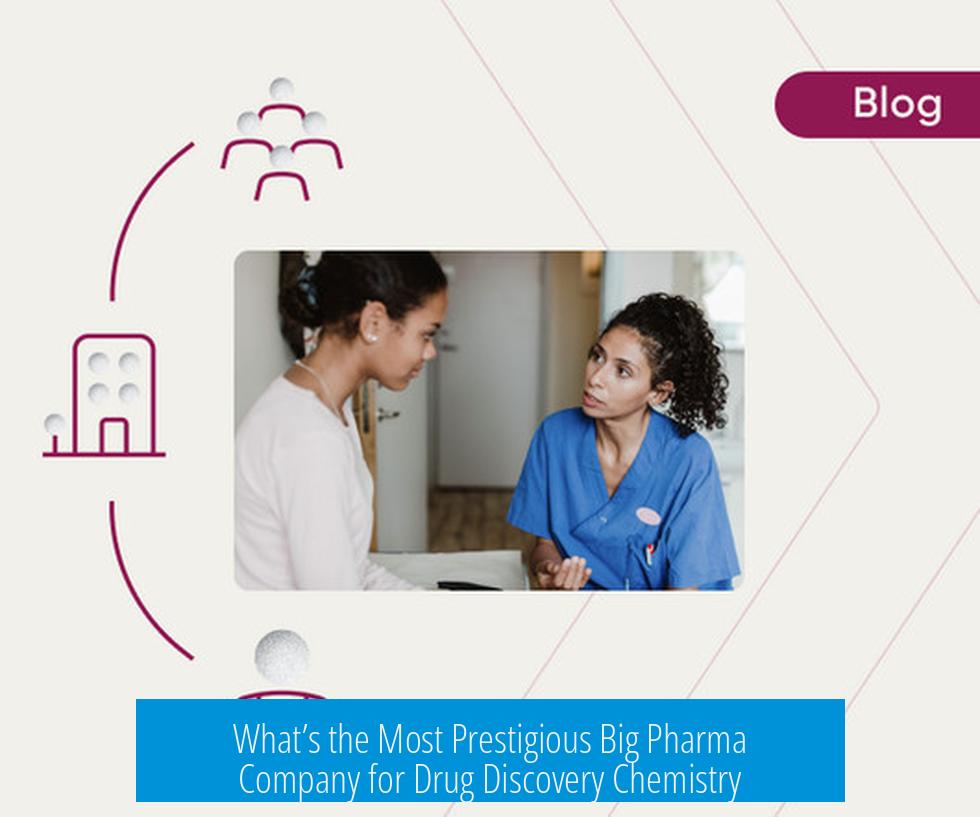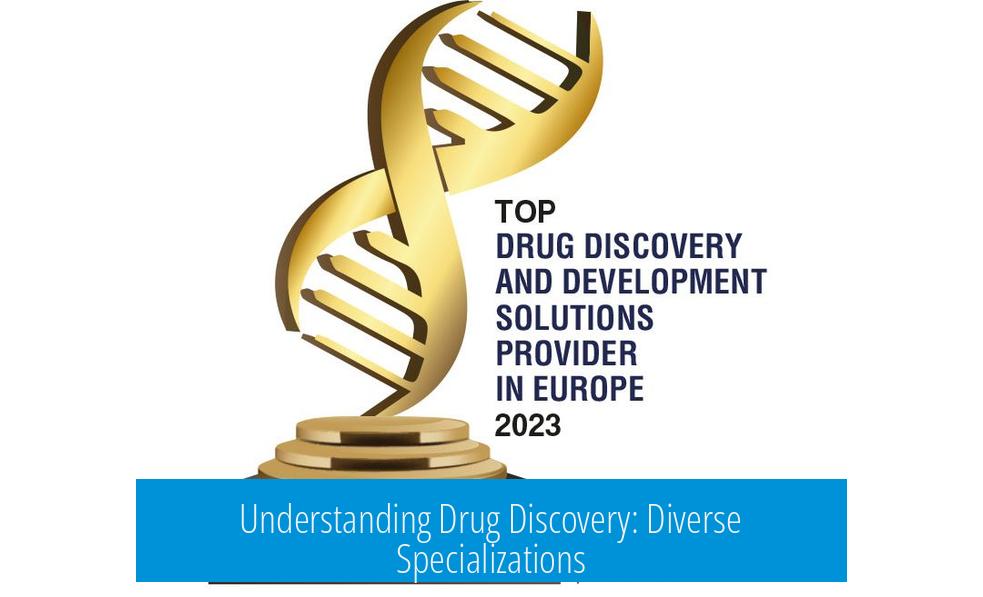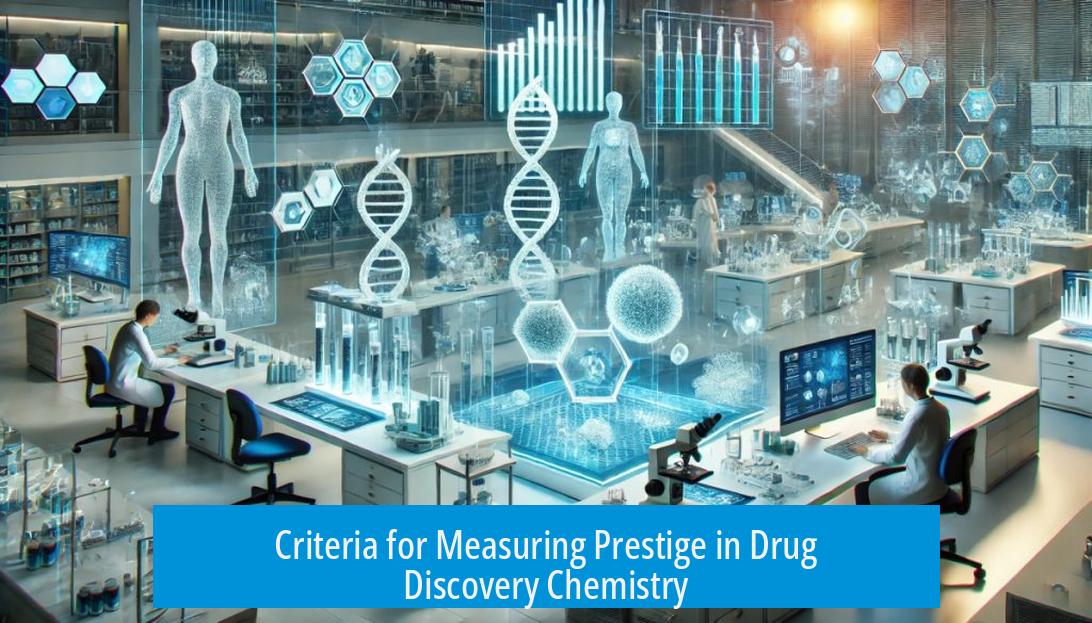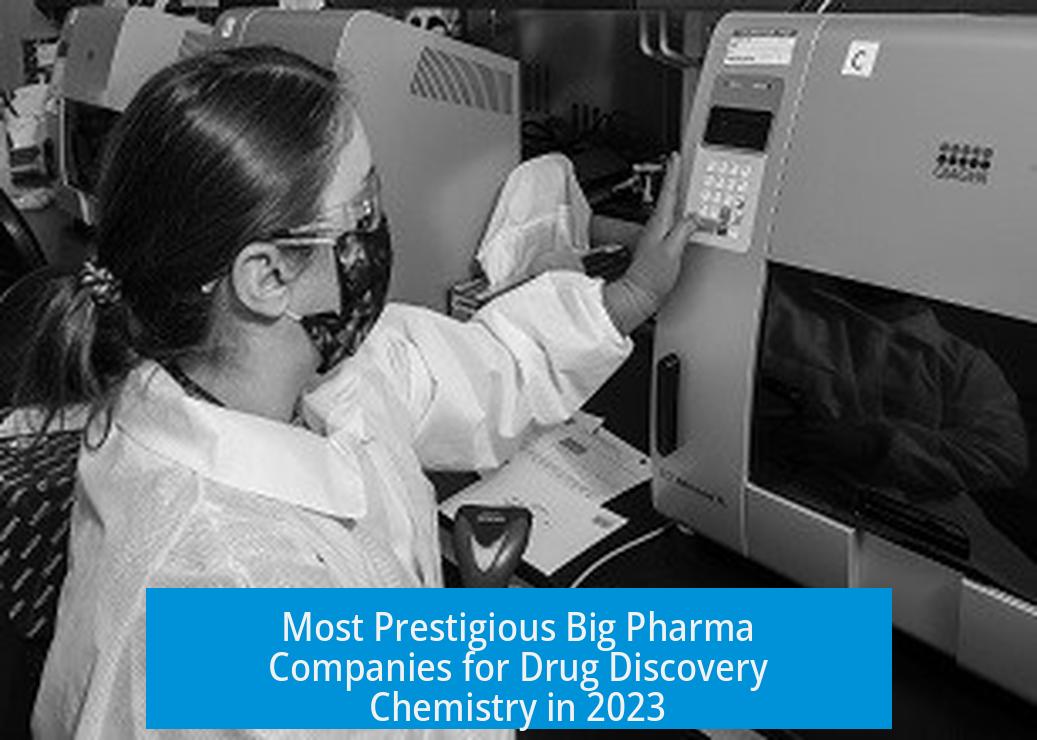What’s the Most Prestigious Big Pharma Company for Drug Discovery Chemistry?

The most prestigious big pharma company for drug discovery chemistry depends largely on the specific area of drug discovery and the criteria used to define prestige. Merck often leads in small-molecule chemistry and process synthesis, whereas Pfizer stands out for biologics and therapeutic development. Other major players with strong reputations include Roche, GSK, Novartis, Janssen, and Vertex. Prestige is multifaceted, reflecting scientific output, hiring practices, therapeutic innovation, and company culture.
Understanding Drug Discovery: Diverse Specializations

Drug discovery is a complex field comprising several specialized domains, such as:
- Computational drug discovery
- Cheminformatics
- Antibody drug discovery
- Small-molecule chemistry
- Peptide therapeutics
Each pharmaceutical company tends to excel in distinct disciplines. For example, some firms invest heavily in computational approaches to screen vast chemical libraries. Others emphasize biologics or antibody therapies. Consequently, the notion of a “most prestigious” company should consider these nuances.
Criteria for Measuring Prestige in Drug Discovery Chemistry

Determining which company is the most prestigious depends on how one measures success. Common metrics include:
- Number of new drugs discovered and approved
- Financial performance and profits
- Impact on patient health and lives saved
Each metric captures different facets of a company’s contribution. For instance, financial success shows commercial viability, whereas counting new drug approvals reflects scientific productivity. The number of lives saved points to real-world therapeutic impact, often the ultimate goal.
Key Industry Giants and Their Strengths

| Company | Noted Strengths |
|---|---|
| Merck | Leader in small-molecule synthesis and process chemistry; historically invested heavily in combinatorial chemistry; known for strategic acquisitions; considered prestigious in hiring. |
| Pfizer | Strong therapeutic output and biologics expertise; competitive in various modalities; significant global footprint. |
| Roche | Recognized for robust drug discovery programs and prestige in certain specialized areas. |
| GSK, Novartis, Janssen, Vertex | A group of top-tier companies with reputations for innovation and solid drug pipelines. |
| Civica | Emerging company noted as a promising player to watch. |
Merck’s Renowned Role in Small-Molecule Chemistry
Merck is frequently highlighted as a global leader for small-molecule drug discovery chemistry. The company demonstrated historic strength through large-scale investments in combinatorial chemistry. This approach allowed rapid generation of diverse chemical libraries, accelerating lead compound identification. Merck’s ability to combine strong synthetic chemistry with process development secures its reputation in organic drug discovery.
Merck’s strategy also includes acquiring biotech and smaller firms. Many of these acquisitions contribute valuable intellectual property and innovative programs, expanding Merck’s drug discovery capabilities. Talented scientists often regard Merck as a prestigious place to work in medicinal and process chemistry, reflecting both rigorous hiring standards and scientific heritage.
Pfizer’s Strengths in Biologics and Therapeutics
Pfizer stands as a dominant force, especially in biologics and therapeutic output. The company’s broad portfolio spans vaccines, antibodies, and traditional small molecules. Pfizer’s large-scale investments in biologics enhance its innovation and market reach in areas like oncology and immunology.
Though sometimes ranked just behind Merck from a pure chemical synthesis perspective, Pfizer remains highly competitive. Its research programs emphasize translational science and clinical impact. The firm is known for effective commercialization of new drugs, which further solidifies its industry prestige.
Other Big Pharma Companies with Prestigious Drug Discovery Chemistry
- Roche: Known for strong research in oncology and diagnostics, contributing to prestigious drug discovery outputs.
- GSK, Novartis, Janssen, Vertex: These companies have built substantial medicinal chemistry programs. They invest in emerging technologies like gene therapy and precision medicine.
- Civica: Classified as an emerging firm, Civica is noted for innovative approaches and is an up-and-coming player in pharma.
Influence of Academia and Smaller Organizations
Large pharmaceutical companies often acquire smaller firms or license innovations originating in academia. Target identification, validation, and early-stage discovery frequently come from academic labs or biotech startups. The integration of these external sources is critical for sustained innovation in big pharma. Recognizing this collaborative ecosystem tempers the emphasis on company brand prestige alone.
The Role of Research Culture and Passion
Prestige in drug discovery chemistry also stems from work culture and the quality of research teams. Enthusiastic scientists and well-organized projects drive success. Industry talks typically showcase well-managed and exciting drug discovery efforts, reflecting strong internal culture.
Talent acquisition is influenced not only by brand name but also by a company’s research environment. Groups passionate about molecular design and synthesis tend to produce better outcomes regardless of firm size or history.
Pharmaceutical Mergers and Market Dynamics
Big pharma portfolios fluctuate due to mergers and acquisitions. These changes affect the perception of which company leads in a specific drug discovery area. For example, ownership of intellectual property and research assets can shift, redistributing prestige. Market dynamics, regulatory environments, and therapeutic trends also influence companies’ reputations over time.
Ethical and Societal Perspectives
Some individuals consider the broader impact of pharmaceutical companies on healthcare costs and accessibility. This influences perceptions of prestige within the scientific and medical communities. While such concerns do not directly relate to drug discovery chemistry, they shape the landscape in which these companies operate and recruit talent.
Summary of Key Points
- No single indicator defines the “most prestigious” pharma company for drug discovery chemistry; it depends on specialization and chosen metrics.
- Merck leads in small-molecule synthesis and process chemistry, with a strong reputation for hiring and innovation.
- Pfizer excels in biologics and broad therapeutic development.
- Other big pharma companies like Roche, GSK, Novartis, Janssen, and Vertex hold significant prestige.
- Smaller firms and academia play pivotal roles in early drug discovery stages, feeding innovation into big pharma pipelines.
- Research group culture, passion, and scientific focus weigh heavily in how prestige is perceived.
- Pharmaceutical mergers can shift intellectual property and change company standings over time.
What’s the Most Prestigious Big Pharma Company for Drug Discovery Chemistry?
If you’re asking WHICH big pharma company holds the crown for drug discovery chemistry, the answer is—it depends. What type of drug discovery? What measures of prestige? For small-molecule synthesis, Merck often leads. If biologics and therapeutic output excite you, Pfizer has a strong claim. But jump in deeper, and the story gets richer.
Let’s unpack this layered question and figure out why there’s no simple winner in this high-stakes game of innovation.
Drug Discovery: A Many-Headed Hydra
First off, drug discovery isn’t one-size-fits-all. Companies shine in different domains:
- Computational drug discovery uses algorithms to predict promising candidates.
- Cheminformatics handles chemical data processing and analysis.
- Antibody drug discovery crafts biologics to target diseases.
- Small molecule chemistry deals with the classic chemical structures we’ve known for decades.
- Peptides are gaining traction as an exciting therapeutic class.
Each big player focuses its resources differently. For instance, Merck’s prestige largely stems from its prowess in small-molecule synthesis and process chemistry—a core organic chemistry domain. Meanwhile, Pfizer flexes its muscles with strong therapeutic output and biologics expertise. You can’t really crown a single “most prestigious” company without saying, “…depending on which type.”
Measuring Prestige: Dollars, Drugs, or Lives?
How do you gauge prestige? Is it pure profit? Number of new, approved drugs? Or the impact on lives saved? The pharma industry offers no shortage of metrics—and none tell a full story alone.
Big profits can come from savvy acquisitions and marketing, not just innovation. Take Merck: historically, it’s invested heavily in combinatorial chemistry—throwing tons of resources behind what was once a hot strategy in drug design. This capital firepower funded developing many compounds and strategic acquisitions of smaller, innovative companies. So sometimes, the prestige seen is as much about financial weight combined with chemistry talent.
On the other hand, Pfizer’s reputation is bolstered by a strong lineup of biologics and blockbuster medications that directly affect global health outcomes. You might say Pfizer wears the crown for therapeutic breadth and impact.
Big Pharma Titans and Their Reputations
Merck and Pfizer are the obvious contenders in this race—they’re known globally as drug discovery giants. Merck, in particular, is credited with having one of the best hiring reputations among chemists. Their small-molecule synthesis teams have produced some of the most elegant and efficient processes in the business.
Pfizer leans more into biologics, immune-oncology, and innovative therapies, giving it a massive footprint across treatment types. It’s a behemoth you can’t overlook.
Let’s also not forget about others like GSK, Novartis, Janssen, Vertex, and Roche. Each brings something unique:
- Roche earns mentions as prestigious, especially in biotech-driven molecules.
- GSK and Novartis combine global reach with advanced research programs.
- Vertex is a specialist in cystic fibrosis drugs, showing how a smaller giant can dominate a niche.
These companies make “prestige” less a contest and more a mosaic of excellence.
The Culture Factor: Passion Over Branding
Industry insiders often say culture and passion outshine brand names themselves. A team with drive and chemistry chops can outperform, even if the corporate logo isn’t etched into the public consciousness as deeply as Merck’s or Pfizer’s.
For example, industry talks rarely describe projects as dull or disorganized—it’s the people who breathe life into the science. The most exciting research groups—regardless of the company name on the door—tend to lead innovations forward. So, if you’re job hunting, the culture fit and team dynamic might matter more than which pharma giant is on your resume.
Emerging Stars: The Rise of New Players
Big pharma isn’t the only game in town. Civica, a relatively new player, earns buzz as an up-and-comer in drug discovery. Their rising potential signals that the landscape can evolve quickly, and prestige may shift with it.
Moreover, smaller institutions and academia supply foundational work. Nearly all major pharma pipelines rely on target validation and early discoveries done outside their walls. So, the “prestigious big pharma” story is really a partnership between giants and nimble pioneers.
Practical Takeaway: What to Look for When Choosing a Big Pharma Partner or Employer
- Match your interest to a company’s strengths: If you love organic chemistry, Merck’s small-molecule focus is alluring. Into biologics and broad therapeutics? Pfizer is your draw.
- Consider culture and passion: Don’t just scan brand names. Investigate teams, project excitement, and research freedom.
- Watch emerging companies for innovation: New players could shake up old hierarchies.
- Remember the role of smaller entities: Prestigious discoveries start often in academia, later licensed or acquired by big pharma.
- Examine how you measure success: Profit, drug approvals, or lives saved—your perspective frames what “prestigious” means.
Final Thoughts
So, what’s the most prestigious big pharma company for drug discovery chemistry? The short: Merck and Pfizer** occupy the top tier, each excelling in distinct drug discovery realms. Merck shines brightest in small-molecule chemistry while Pfizer leads strongly in biologics and therapy output. But beyond these giants, the pharma world’s prestige tapestry includes GSK, Novartis, Roche, Janssen, Vertex, and rising stars like Civica.
At the end of the day, it’s less about a single shining crown and more about how these companies fit various niches and fuel a system where passion, expertise, and opportunity combine to save lives and push science forward.
So, pondering a career or partnership in big pharma? Look beyond brand spotlight. Dive into the substance of their research, culture, and your own values. Because in drug discovery, true prestige is about what you create, not just the name you carry.
1. Which big pharma company is seen as the most prestigious for small-molecule chemistry?
Merck is widely regarded as the leader in small-molecule synthesis and process chemistry. It has a strong reputation for hiring and investing heavily in this area.
2. Does Pfizer hold prestige in drug discovery chemistry?
Yes. Pfizer is recognized for its therapeutic output and strength in biologics. While slightly behind Merck in organic chemistry, Pfizer is still a top contender in the field.
3. How do acquisitions affect a company’s prestige in drug discovery?
Many big pharma companies, including Merck, boost their portfolio by acquiring smaller organizations. This can enhance their IP but complicates attributing prestige purely to internal discovery efforts.
4. Are there other companies considered prestigious besides Merck and Pfizer?
Yes. GSK, Novartis, Janssen, Roche, and Vertex are also frequently cited as prestigious players in drug discovery chemistry, each with its own strengths.
5. Is prestige the best metric for choosing a company in drug discovery chemistry?
Prestige can be subjective and less relevant than a company’s culture or passionate research groups. Success depends more on research environment than brand name alone.





Leave a Comment